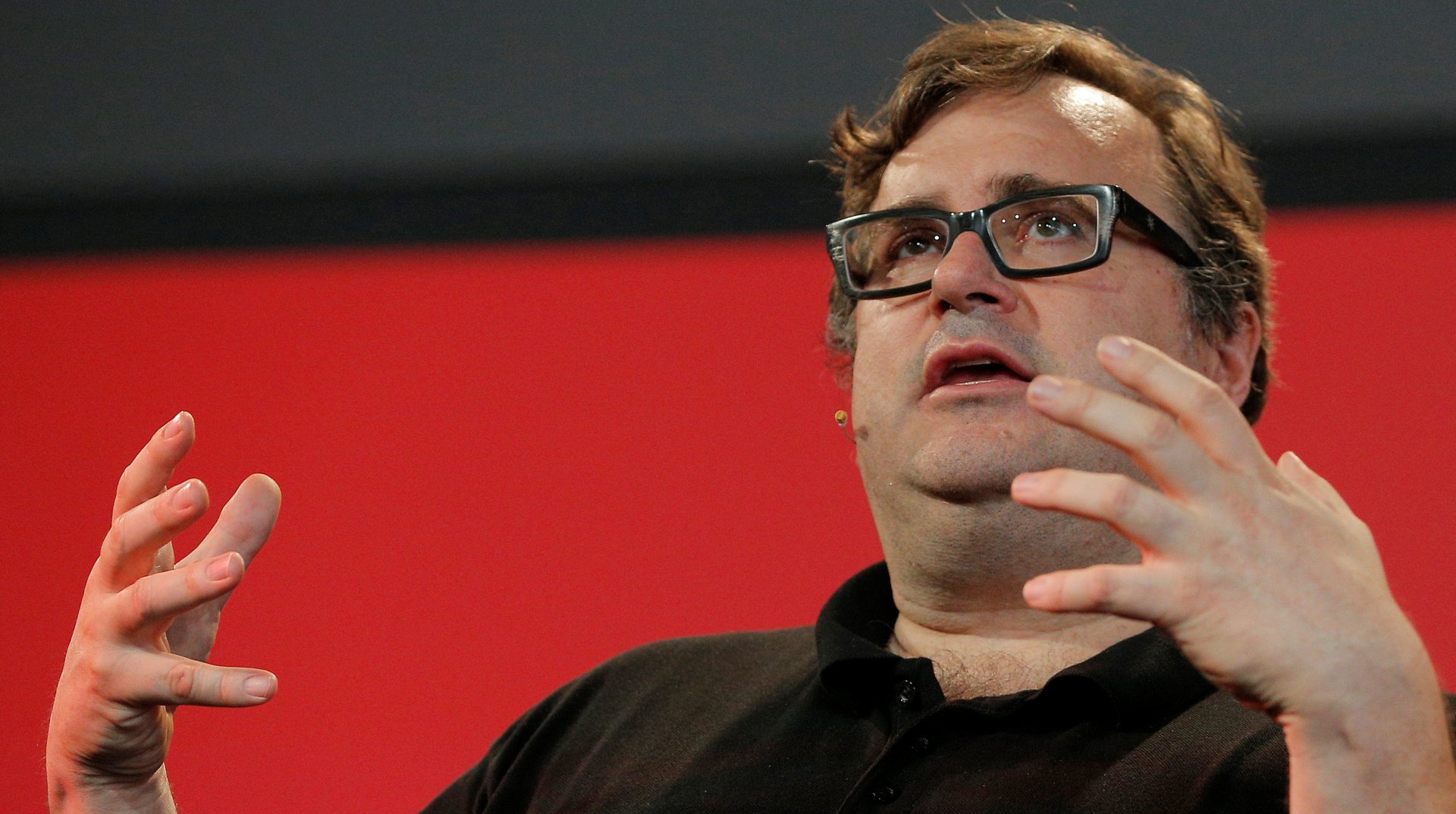Reid Hoffman reveals the most important insight he learned on his “Masters of Scale” podcast
Reid Hoffman knows how to network. A co-founder of LinkedIn, his most successful venture is literally rooted in the power of professional connections—a value he embodies as a preeminent Silicon Valley mentor and as an investor at venture capital firm Greylock Partners.


Reid Hoffman knows how to network. A co-founder of LinkedIn, his most successful venture is literally rooted in the power of professional connections—a value he embodies as a preeminent Silicon Valley mentor and as an investor at venture capital firm Greylock Partners.
Hoffman’s podcast, “Masters of Scale,” can be seen as an extension of his mentorship and fascination with management. On it he interviews Silicon Valley’s top entrepreneurs—from Mark Zuckerberg and Sheryl Sandberg to Mariam Naficy and Tristan Walker—to extract the keys to their successes, and failures.
And while each episode has its gems, there’s one that Hoffman, speaking with Quartz At Work as “Masters of Scale” prepared to launch its second season on Nov. 8, holds up as the most important insight he has learned from his podcast guests thus far. It’s the concept of “10-star design,” an idea explained in the first season by Airbnb CEO and co-founder Brian Chesky on episode 1.
On the podcast, Chesky attributes his home-rental site’s success to his and his co-founder’s obsessive focus on customer experience. “If you want to build something that truly viral you have to create a total mind-fuck experience that you tell everyone about,” Chesky tells Hoffman. And getting to that requires thinking about the most rudimentary thing you can provide, up to the most outrageous thing, and then identifying the steps you could realistically take to bring your product or service to the next level. Take, as Chesky does, the experience of renting a room on Airbnb:
“So [a] one-, two-, or three-star experience is you get to your Airbnb and no one is there. You knock on the door. They don’t open. That’s a one-star. Maybe it’s a three-star if … you have to wait 20 minutes.
If a five-star experience is you knock on the door, they open the door, and they let you in, great. That’s not a big deal. You’re not going to tell every friend about it. You might say, ‘I used Airbnb. It worked.’ So we thought, ‘What would a six-star experience be?’ A six-star experience, you knock on the door, the host opens. ‘Hey Reid, welcome to my house.’ … On the table would be a welcome gift. It would be a bottle of wine, maybe some candy. You’d open the fridge. There is water. You go to the bathroom, there’s toiletries. The whole thing is great. That’s a six-star experience. You say, ‘Wow I love this more than a hotel. I definitely going to use Airbnb again. It worked. Better than I expected.’
What’s the seven-star experience? You knock on the door. Reid Hoffman opens. ‘Get in. Welcome. Here’s my full kitchen. I know you like surfing. There is a surfboard waiting for you. I spoke to lessons for you. It’s going to be an amazing experience. By the way, here’s my car. You can use my car. And I also want to surprise you. There is this best restaurant in the city of San Francisco. I got you a table there.’ And you’re like, ‘Woah. This is way beyond.'”
As Hoffman notes on the podcast, “adding stars clearly excites Brian.” Mercifully, listeners are allowed to quickly skip ahead to the 10-star experience. Here’s Chesky again:
“So what would a 10-star check in be? A 10-star check in would be The Beatles check-in. In 1964. I get off the plane and there’d be 5,000 high school kids cheering my name, with cars welcoming me to the country. I get to the front yard of your house and there’d be a press conference for me, and it would just be a mind-fuck experience.
So what would 11-star experience be? I would show up at the airport and you’d be there with Elon Musk and you’re saying, ‘You’re going to space.’
… [M]aybe nine, 10, 11, are not feasible. But if you go through the crazy exercises, keep going, there’s some sweet spot between ‘They showed up and they opened the door,’ and ‘I went to space.’ That’s the sweet spot. You have to almost design the extreme to come backwards. Suddenly, ‘knowing my preferences and having a surfboard in the house’ [does not] seem so crazy, [but rather] reasonable. It’s actually kind of crazy, but this is kind of the stuff that creates the great experience.”
Hoffman has been hooked on the idea ever since.
“The amazing reach of that vision, of the 10-star design and working back, was something that I had a light exposure to before Brian, but now it’s really important for me personally,” he tells Quartz At Work.
The obvious question regarding this kind of strategy is: When do you stop? As an entrepreneur intent on creating an incredible customer experience, where do you draw the line between a 10-star dream and lower-star compromises?
According to Hoffman, it all comes down to financials, and—fittingly—scalability. ”You have to ask yourself, ‘How do I get this product at a reasonable cost point, how do I get to a point where I can scale and operationalize, but still have surprise and delight for my customers?'”
And if you go way down on the 10-star scale, and you can no longer surprise and delight your customers, you need to pivot to a different product or service, says Hoffman. “But if you can figure out how to deliver that surprise and delight, while reaching a place where the business works, the cost is reasonable, and scaling is possible, then that’s where you intersect with the sweet spot.”
Easier said than done—but is there any aspect of creating a “mind-fuck” Silicon Valley success that isn’t?